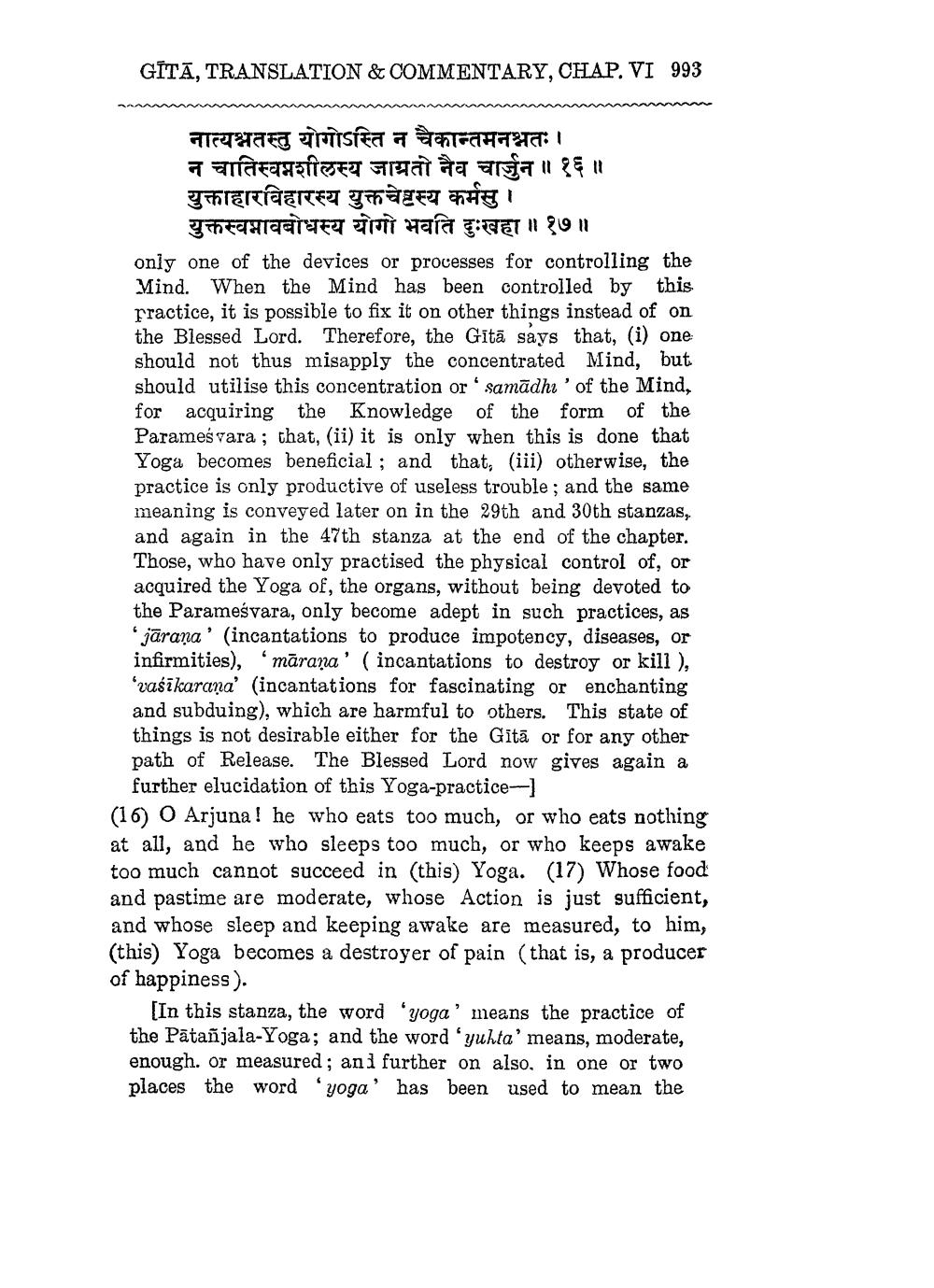________________
GĪTĀ, TRANSLATION & COMMENTARY, CHAP. VI 993
नात्यश्नतस्तु योगोऽस्ति न चैकान्तमनश्नतः। न चातिस्वप्नशीलस्य जाग्रतो नैव चार्जुन ॥१६॥ युक्ताहारविहारस्य युक्तचेष्टस्य कर्मसु ।
युक्तस्वनावबोधस्य योगो भवति दुःखहा ॥ १७॥ only one of the devices or processes for controlling the Mind. When the Mind has been controlled by this practice, it is possible to fix it on other things instead of on the Blessed Lord. Therefore, the Gītā says that, (i) one should not thus misapply the concentrated Mind, but should utilise this concentration or 'samādhr' of the Mind, for acquiring the Knowledge of the form of the Parames vara ; that, (ii) it is only when this is done that Yoga becomes beneficial; and that, (iii) otherwise, the practice is only productive of useless trouble; and the same meaning is conveyed later on in the 29th and 30th stanzas, and again in the 47th stanza at the end of the chapter. Those, who have only practised the physical control of, or acquired the Yoga of, the organs, without being devoted to the Parameśvara, only become adept in such practices, as
jarana' (incantations to produce impotency, diseases, or infirmities), mārana' ( incantations to destroy or kill ), 'vašīkarana' (incantations for fascinating or enchanting and subduing), which are harmful to others. This state of things is not desirable either for the Gītā or for any other path of Release. The Blessed Lord now gives again a
further elucidation of this Yoga-practice(16) O Arjuna! he who eats too much, or who eats nothing at all, and he who sleeps too much, or who keeps awake too much cannot succeed in (this) Yoga. (17) Whose food and pastime are moderate, whose Action is just sufficient, and whose sleep and keeping awake are measured, to him, (this) Yoga becomes a destroyer of pain (that is, a producer of happiness).
[In this stanza, the word 'yoga' means the practice of the Pātañjala-Yoga; and the word 'yuhta' means, moderate, enough. or measured ; and further on also, in one or two places the word 'yoga' has been used to mean the




